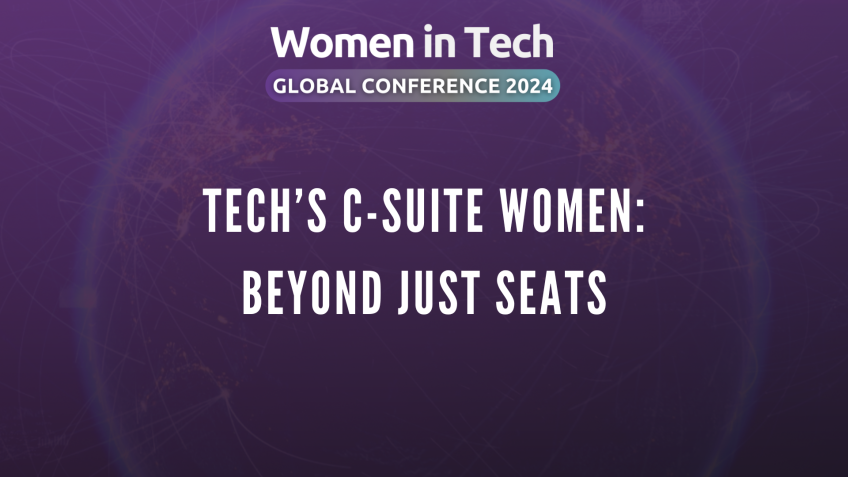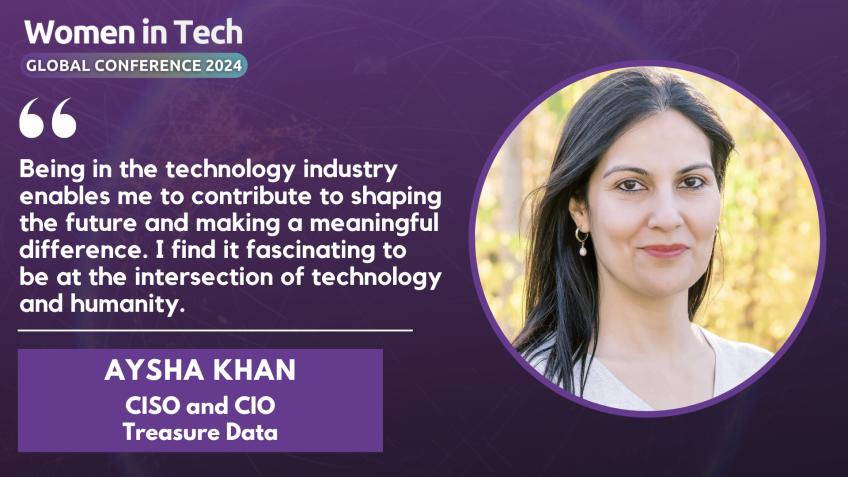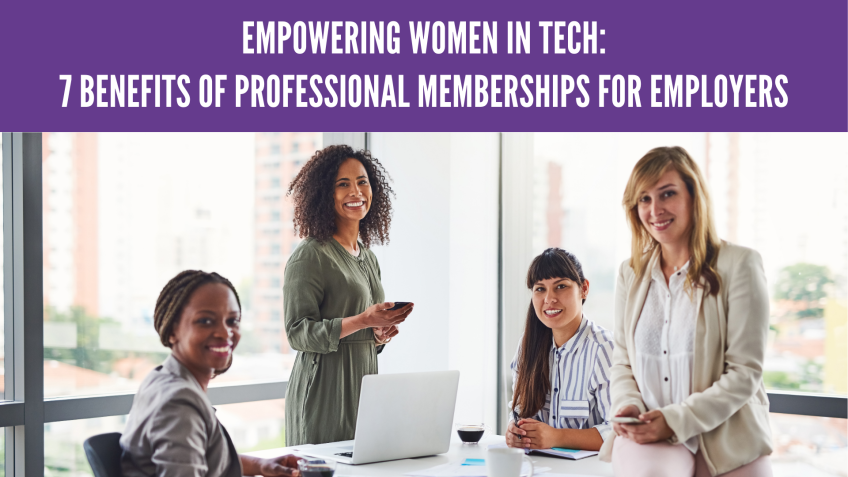Leader, Tell Your Story
Discovering The Mosaic of Leadership: My Personal Journey
Hi there, my name is Melissa Boggs. Not only am I the VP of Business Agility at South Labs, but I am also a proud leader, a dedicated mom, and an individual with an ever-evolving story. In this article, I want to share some insights from my journey and hopefully inspire others on their leadership path.
Charting Inspiration: From Childhood Dreams to Leadership Ambitions
Believe it or not, as a child, I longed to be a pop star. My parents, accomplished musicians themselves, nurtured my performance talents and made me believe that my dreams could become a reality.
Discovering Perseverance Through Doubt
However, as I became older and the music scene evolved, my ambition began to waver. I felt disconnected from the new style of music that ascending pop stars like Mariah Carey, who sounded entirely different from me, were creating. I began doubting myself and my dreams started to fade.
The Power of Role Models
If only I had known about a singer like Amy Winehouse, whose unique vocal style and alt-pop genre might have resonated with me, perhaps my story may have unfolded differently. How we see ourselves in others infuses us with belief, inspiration, and an understanding of what's possible. This concept applies not only to our personal pursuits, but also to how we lead.
Redefining Leadership Perspectives
The notion of a successful CEO or leader is often conflated with an image of a man in a suit, looking strong, and exuding a sense of masculinity. Regrettably. these images often neglect to acknowledge the vulnerabilities, the doubts, and the fears that even the most powerful leaders grapple with.
In today's fast-paced age, leadership needs to be diverse, accommodating, and adaptable. This requires embracing empathy and intuition, as well as strength and command.
Action Needed: Step Forward and Share Your Story
- It's not enough to understand the importance of diversified leadership. To influence and accelerate change, we must share our own stories. Vulnerability may be demanding, but it's brave and absolutely essential.
- Each of us has a unique journey. For example, I'm a late graduate with high IQ, an over-analyzer, an empathetic introvert, and an optimist. These traits are not typical for leaders in the traditional sense, but they've been instrumental in shaping me into the leader I am today.
- By sharing our experiences and insights, we enable future leaders to relate with us, gain courage, and identify their potential for leadership.
Conclusion
Transformation doesn't happen in a vacuum. We can create exponential change just by sharing our stories. By telling our jovial successes, our earnest struggles, our decisive leadership moments, we inspire others to do the same, thus enlarging the global picture of what a leader can look like.
An open, inclusive leadership narrative helps us all understand that a leader doesn't have to conform to a single image. Leaders can be shaped by unique life experiences, diverse perspectives, and distinct qualities. It is this mosaic of leadership that will drive our world forward and empower the next generation of game-changing leaders.
So step up, tell your story, and forge a path forward – the world needs your voice.
Video Transcription
My name is Melissa Boggs. I am the VP of business agility at South Labs. But in addition to that, I am a leader, I am a mom and many things, there are many pieces of my story and many pieces of my leadership journey.And so I'm excited to share some things with you about what I have learned and what I hope to see in the world. So I'm gonna start by telling you a personal story. Uh This young lady probably about seven years old, if I had to guess was me. Um I grew up at a very young age singing. So my parents were both musicians. I don't have pictures of them readily available. So let's pretend these are my parents. Um I grew up on the stage singing and from a very young age, wanted to be a pop star and you know, I had a decent voice and was able to do some performing around my little town. And part of the reason that I believed that I could be a pop star was that I saw myself in my parents. So, no, they weren't famous pop stars, you know, on the radio but they were accomplished musicians and I saw myself in them. And so I believed for quite some time that I too could be a musician or a pop star.
So another adolescent photo of Melissa, I was probably about 11 years old here and still believed that being a musician and being a pop star was in my future in part because of this particular singer. Um, you may not be familiar with her. You may, but her name is Amy Grant. And what I saw in Amy Grant was a, a singer whose voice sounded very similarly to mine. So I have an alta voice. I have a little bit of rasp to my voice and I saw that in her. So I thought if she can do it, then I can do it too. Listen to her music all the time, modeled some of my style as a singer, you know, somewhat around her. But again, I connected with her because I felt like she sounded like me. So 1617 year old Melissa, at this point, another singer came onto the scene and basically took over all of music at least in the United States. And that's Mariah Carey. Now, Mariah Carey does not sound like me whatsoever. She has a very beautiful high soprano voice. She does all of these runs. And when I would listen to her, I became discouraged and I didn't see myself in her and she was dominating, you know, the pop charts all over the world. And so at that point, my dream began to die. So around 16 or 17, I decided that maybe I wasn't meant to be a pop star. And part of the reason for this talk is I wish I could go back and hug her.
You know, I wish I could go back and explain to her that there are many types of singers in the world. You know, if only I had known about Amy Winehouse, at that point in my life, I might have felt a little bit differently. Yeah. So I wanna talk a little bit here about role modeling. So there's a paper out called the motivational theory of role modeling. And it talks about basically the importance of role models in not only establishing kind of things that people can model in their behavior, but also showing people what's possible, showing people inspiration. And so for me, you know, in the early days, my parents not only modeled the behavior of musicianship, but they also inspired me. And the most important to this talk made me believe that things were possible, the same for Amy Grant. Now I love Mariah Carey. It is certainly not her fault that I did not, you know, necessarily relate to her. But if only I had known someone else at that point that I could have said, 00, I do see myself in that person, then my dream might not have died. As quickly as it did. So it doesn't just apply to how people sound or how they look, it also applies to how we lead.
So, for a moment, I want you to imagine some of the most successful CEO S that, you know, or have heard about or just imagine what a successful CEO looks like. So I'm gonna actually give you about five seconds. I want you to stop and think about that for just a moment. Now, some of you may have imagined, you know, a strong woman or a non binary person. But chances are most of us imagine what we see here in the Google search that I made, I literally googled the successful CEO and these are the images that came up. Now, there are a couple women in here. But for the most part, what we see is men in suits some with briefcases looking very strong and masculine. And I believe that we are beginning to make a difference in this, right? Like probably 20 years ago, you might not have even seen any woman in this search. But there's an importance here of the images that we see. The stories that we hear that make a difference in how culture is going to shift. So I, I talk a lot about storytelling in my work because storytelling, his culture, you know, I like to define culture as traditions, habits and behaviors, but those traditions, habits and behaviors only propagate when we tell their stories.
And so if the only story that we were told as, you know, young professionals was that a successful CEO looked a certain way, sounded a certain way, or most importantly, led a certain way. And that might have influenced how we believe or how the future generations believe leaders should look in the future. So here's another, I, I love the caption of this one. Actually, I'm gonna read it to you mature businessman discussing paperwork over the phone while working on a laptop at his desk in an office. This came up also from successful CEO. So this is the image that we're putting out to the world. I can imagine that this particular person that we're kind of uh imagining here doesn't show weakness, doesn't tell people when he's afraid. And I've had the opportunity in recent years to get to know a number of CEO S and I gotta tell you every single one of them has moments of fear, doubt, questioning and more. But we don't tell those stories. We don't talk about that. So since very few of us are in their inner circle where they share these things with each other, we'll never know that. So we continue to believe that this is the default for leadership.
Think about nearly every CEO in every movie could be male or female or non binary. They look and sound a lot like the guy in this picture, but some CEO S don't wear ties, some are not aggressive and yet they're very effective. So these things can apply to. This isn't a matter of gender. Although obviously women have a long way to go in the workplace as well as non binary folks. But this is actually just more about how we lead, what type of traits that we lean into when we lead and then how we talk about it because the problem is when that default view that we just saw is the only thing that young leaders see, then they begin to believe that they are not fit to be leaders.
They start to place this moat between themselves and leadership roles because they don't believe they have what it takes. How could I possibly be a CEO or a leader one day when I have weakness when, when I'm sometimes empathetic, you know, oh, that doesn't seem like a CEO because that's what we've been told. So I'll tell you a very quick story. Um I was actually talking to a friend about giving this talk like a week or so ago and she got really excited and she was like, yes, yes, yes, I have a friend who I believe would be an amazing board member for this organization that I'm a part of and I wanted to nominate her, but she turned me down, she didn't want me to nominate her because she said I'm not like that, I'm not that kind of person.
And when my friend dug deeper. She said, I'm not, you know, the type of person that is gonna give up and, or stand up and give some big speech or the type of person that's going to argue over a boardroom table. And when she was telling me this story, like my heart just ached for her because she went on to say that her friend was thoughtful, empathetic, incredibly intelligent kind. And I don't know about you. But if I'm on a board, that's the kind of person I want to sit next to me on the board, not the person who's gonna fight me over the table or stand up and speak over everyone else. And so I was already giving this talk, but I thought man, like there's, there's a lot of work to be done here. And the fact is like things like Harbor Business Review, Forbes, they can put out all kinds of papers about the importance of all types of leaderships. But at the end of the day, culture is based on storytelling. We have to be willing to step forward and tell our own stories in order for people like us to see themselves in us much like, you know, young Melissa and Amy Grant. So this particular quote uh kind of stood out to me, apologies. I gotta make this bigger for myself. A senior leader recently likened the impact of masculine norms on her daughter's ambition to acid rain.
She started her career as confident and ambitious, articulate about what she wanted to achieve. However, over time, she began to give up on her dreams of success like acid rain. Her interest in her big career was eroding. These stories are everywhere and they're everywhere because people don't see themselves in the world that's coming up. But here's what a Anne Cummings says. She's a former warden management professor. The notion of what makes an effective leader is changing and you will find both traditionally defined masculine and feminine components in this changing. Leadership companies need leadership of all kinds in order to survive the rapid pace of change that we're in, we need different types of leaders than we did in the eighties, the nineties or even 10 years ago. We've come to understand that leadership is more than command and control.
Sometimes it's empathy, it's intuition. And here's the thing, especially as women. We've been taught that telling our story is selfish, arrogant even. And I am here to violently disagree with that because the fact is being vulnerable is incredibly brave and being vulnerable enough to tell your story to, to share your leadership journey. It's selfless. It's caring about the leaders that are coming up and caring that they see a place for themselves in the world that we're building, that we're building for them and with them. So that's where you come in. You think you're gonna come to my talk and walk away without some action items. Did you today's young leaders? They need to hear from you. You specifically are actually like pointing at you no matter who you are. There is a young leader out there who is looking for someone like you. They're looking to see if people like them exist in leadership roles anywhere. Again, if I had only known about Amy Winehouse, I probably would be a pop star right now. Just kidding often. All they see is this cookie cutter version of a leader who is masculine, tough, never shows weakness, never shares that they're afraid.
And the thing is if we can deliberately show who we are, what we've learned and how we feel in hopes that it will reach and energize those, those young people or maybe they're not even young. Let's be honest, we have amazing leaders that are of all generations in our orgs right now that may feel this way too. They may be looking around and maybe their mid career and they're ready for a really big leadership role. But all they see around them is this default leadership. We need to reach them as well. There's so many potential leaders out there that don't fit that 19 eighties version of what a leader is. So when we start sharing our stories, we increase the diversity of leadership, we increase the perspective and the view of what leadership can be. We begin to undo decades of social conditioning that a leader looks or behaves just one way. And I gotta tell you like, I kind of get goosebumps when I think about that because imagine what the board of directors or does the our team uh pages on companies, websites to look like or sound like or behave like 1020 years from now. And here's the cool by-product that I kind of learned by doing this myself. When we begin to tell our story, we actually began to own it.
We, we begin to acknowledge and appreciate the steps that we took to get here and the way that we lead and how important our own leadership is to not just the organization that we serve but to the world in general even better. Let's make this exponential for a moment when we not only tell our story and invite others into the conversation, we invite them to tell their stories too and imagine what that looks like. Imagine how quickly we can shift if we create exponential change simply by telling our stories.
And I realize like that's not that simple. Sometimes it's sometimes it's hard, sometimes it's um difficult to articulate it. But how much better off are we when we do so, just think about that exponential change that you could create simply by telling your story. So here's my story.
I wasn't gonna ask you to do this without modeling it myself. So I'm a Zenn uh where a microgeneration caught between Gen X and the millennials. I was a late college graduate. So I did not get my undergrad until I was 32 and I did not get my uh master's degree, my MB A until I was 36. And I did a lot of living and a lot of learning on the way to getting those degrees. I'm really proud of having achieved that because I had a family so people with families can get college degrees. I have a high IQ I share that with you because again, we have been shamed into not owning our story. So I'm going to own that. I have a high IQ but IO overanalyze everything. I overanalyze my behavior to the point of paralysis at times, I'm extremely empathetic, which is a strength. It is a very, very uh it's a strength that I'm proud of. But I've only recently learned how to construct boundaries at work. I am far more introverted than most people would assume. Yes, I totally love public speaking. I get more scared about little things like making phone calls to the utility company than I do standing before you today and, and talking about my story, I'm a strategic dreamer, endlessly optimistic and, and a excuse me, analytical by nature.
I may not have become the next great pop star, but I have had the privilege of coaching and leading some incredibly impactful organizations. I was the co ceo of the largest agile organization, uh accrediting organization with over a million members and I did that with all of these strengths. I did not wear suits to work every day. I did not throw things in board meetings. I did not fight with people. I led with empathy. I led with intelligence. I led with introversion, believe it or not, I led with strategy. All of these things make me the leader that I am. And if any of these things resonated with you, just know that you can be a leader too. So my encouragement today is this, look for ways to tell your story, to tell your leadership story, write a blog, be a guest on a podcast, do a talk at a conference or do a lunch and learn at your org. Tell your story, tell it one on one to young leaders in your community. Deliberately find a way to share who you are, how you lead so that you can add to the mosaic of leadership in this country. Sorry, in this world, here's the magical thing. When you do that, you own your story, you inspire others and you inspire them to own their stories too. Exponential change the world needs you. Thank you.





